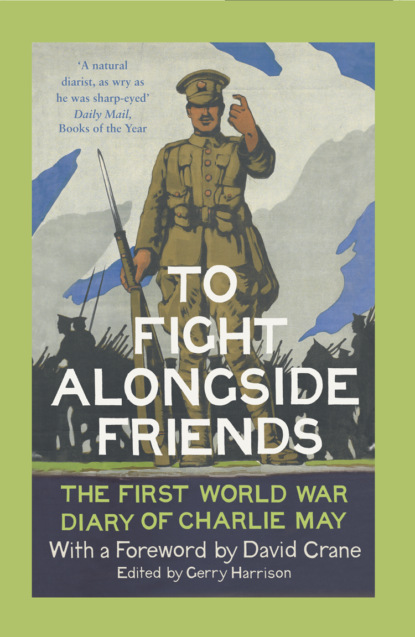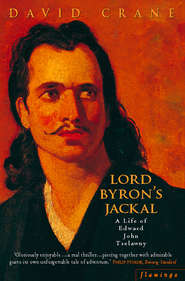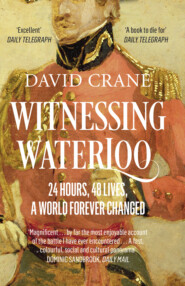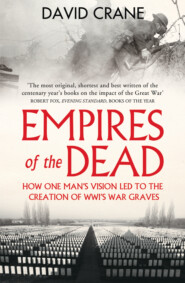По всем вопросам обращайтесь на: info@litportal.ru
(©) 2003-2024.
✖
To Fight Alongside Friends: The First World War Diaries of Charlie May
Настройки чтения
Размер шрифта
Высота строк
Поля
He is a regular nailer is the Doc and I admire him from the bottom of my heart.
The men fell out in bunches till at last we were left on an open plain with 60 footsore men, separated from the battalion and utterly lost.
I bet there will be some grey hairs to show for the night’s adventure. The men were so done that they sneaked away from us and hid where they could lie down in the wet and sleep. We dug ’em out and booted them on and in the end we got here, bringing every straggler with us.
I hope I may long be spared a similar tour.
Don & I are now billeted in a large French house from which the family is absent, and are happy as Larry now the day is over.
13th November ’15
A busy and a good day. It has not rained. Let that be noised abroad. Our village is small and poor on the whole but we have sorted out good billets for both officers and men. The latter for the most part are in lofts and barns with plenty of dry, warm straw to lie on.
They are well fed and rested & the trying tour of yesterday is now only a memory to be talked about to wondering friends and relatives when the war is over and the beer of peace foams in the pewters in the hostel of their local village.
Don Murray and I are in clover.
This billet is all right. And we have turned the dining room into the Coy mess room, a purpose it serves admirably. We are all foregathered in it this evening writing letters etc. and are a cheery party. Murray, Bowly, Cotton, Shelmerdine and Prince are all here.
Young Shel did jolly well yesterday, so Murray tells me. He is our Mess President and is full of eggs and the price of fowls at the moment.
I have put your photo and Baby’s on the mantelpiece in our mess and they look jolly homely, my sweetheart. Tonight I have written you and am mighty glad to say I had two letters and a watch case from you last night.
This village is quite quaint and its inhabitants more so. For the most part they are hairy, dirty, baggy-breeched and in sabots. They have not had the English before but they evince no interest at all. Seemingly they have no interest left in life than the driving of an odd cow or two out on to the hillside to graze. Poor devils. I always understood the French were characteristically clean and neat. But I am sure you could not find a village in England where the occupants are so really grubby.
My bed I must put on record. It is wooden framed, stands against a wall and has a mattress over a foot thick. There is a lovely soft pillow and a warm quilt. The fat pillow arrangement which lies on top I have cast aside because I mistrust it. It looks as though it might work on to your face and try to smother you. Over this massive arrangement hang heavy, cretonne curtains, flowered with a mystic red and yellow flower. I think this must be native to France. Certainly I never saw such a repulsive species of flora in the British Empire. It has its advantages however because the sight of it makes me hot – and warmth is very desirable in this chilled atmosphere.
14th November ’15
Sunday. Church parade at 10 a.m. in an old, broken-down Church with nothing inside it save damp and mildew.
Afterwards, we toured the Coy billets and had to strafe some of the men for having them untidy. For the most part, though, they were quite good although a lot of the men are pretty sorry for themselves, thinking straw but a poor bed. They may, however, be thankful they are doing so well and I have no doubt will fully realise this before we are many months older. Many of them realise it now and are thoroughly enjoying themselves while they may.
Prince is laid up with bad neuralgia and toothache. The day before yesterday cracked him up and he is pretty dicky today. I am very nervous about him because, as you know, I never thought him strong and I am afraid he will prove a weakness if we have hard slogging to do. It is a pity, because he is such a good boy when he is in form.
We have had Bethmann, our interpreter, to lunch today. He is a very decent chap and works hard. We like him. Also he is a good man to keep in with because he has all the arranging of billets etc. – and B Company is not averse to a decent billet when one is going.
We strolled around the village this afternoon and thoroughly explored it. On the top of the hill east of the place there is a great crucifix hanging over in the wind and looking very desolate and sad. Just below it is a hovel or two standing in its attendant heap of manure. These heaps are the chief – at any rate they are the most obtrusive – features of the landscape. They assail the nostrils at every turn and are prolific to a degree. Every house has one, and the bigger the house the larger its heap. Pride of place seems to go with the magnitude of one’s dung-heap. Every man to his own taste, of course. This one, however, certainly strikes a mild outsider like myself as strange.
Doc, who is Scotch, calls these heaps ‘middens’ and curses them unceasingly. He swears we will all die of typhoid if we remain here a week. The well from which the battalion water is drawn he looks upon as chief drain to the collective ‘middens’ and he chlorides of lime like fury. The well, by the way, only fills a dicksie (two galls.) in four minutes, and since it takes about 100 dicksies per day to make tea for the battalion and another 100 or so to fill the watercarts, you will understand that everyone does not look on the well with the same degree of antagonism as does the Doc. It is a splendid thing to put a defaulter on to. One day’s turning of that handle will cure a man of the most divers evils.
15th November ’15
The ground was white as far as one could see this morning with the bare trunks standing out black against it and the frosty sunlight glistening on the snow. Three inches had fallen in the night to the sorrow of all save sundry small boys who whooped and bellowed outside my window and threw snowballs at everyone and became a general nuisance.
The battalion went out for a route march under Seconds-in-Command, leaving Coy commanders with fatigue parties to try and get their houses in order. It was a problem fraught with many pitfalls for the unwary. My own especial bête noir was drainage.
This village is innocent of any such modern fastidiousness as a sewer. Indeed everything drains back on you, not away as any ignorant Anglican might suppose.
I have seen sinks dug, planned gutters here and erected dams there, and striven generally and with moderate profanity till the impossible has been achieved. Water has been persuaded beyond a higher level and my cookers now stand on a more or less dry foreshore.
Also we have dug a bath and built seats round it and a soak-hole for the water which is no longer pellucid. So altogether we have progressed and, so encouraged, I begin to feel some confidence that, did we remain here long enough, the mud might be persuaded to leave the village street.
Dear, old, tax-ridden, law-abiding England! How I would delight to see one of your wolf-nosed sanitary inspectors turned loose in this, our Brucamps.
How you would sniff, how snort, how elevate your highly educated proboscis! How you would storm, how shriek and how summons! And how masterly indifferent would our grubby people be of you, how little would they be impressed, how hopelessly insane they would think you, and what grave danger there would be of a second Revolution if you or any untold number of you essayed to remove from them their beloved dung-heaps.
16th November ’15
More snow greeted us this morning. It is about six inches deep now and the fall continued up to lunch time. It makes the district look very beautiful and, but for the slush underfoot, would constitute no nuisance, since the temperature remains quite mild.
I sent the Coy out under Murray for a march which warmed the men up and, having rescued an ambulance wagon and an ASC [Army Service Corps]lorry from two separate drifts away out in the country, they come back very pleased with their morning’s labours and looking very red-faced and healthy withal.
It has been a day of settling claims for billet damages. I think the French peasantry have Hebrew blood in their veins in degrees of varying intensity. They claim 30 francs for firewood. You offer five and eventually after Madame has dissolved into tears, and protested by various saints her inability to supply firewood of less than two sous the stick, you settle for ten amid a shower of mutual protests of undying affection.
Prince is about again and looking much better. I am very glad because we move tomorrow and it would have been hard luck on him to have been left behind. Also now he can take his Platoon, which is altogether desirable.
As I say, we move. But whither I know not. It is a strange feeling this of being moved about an unknown country like pieces on a chess-board as helpless as they to control our movements and as ignorant of why and wherefore. Yet it has its advantages. It saves worry. One gets into a regular happy-go-lucky way of looking at things, conscious only that one will fetch up somewhere all right and that we will get to the trenches just so soon as the master player decides that we are wanted.
17th November ’15
As anticipated we moved today and, in passing, struck some of the most vile roads one could imagine. The snow had deteriorated on the fairway to a thick slush which made the going heavy and penetrated the stoutest boots. It also has, up to now, defeated the efforts of the heavier transport vehicles to get here but we have rounded up the lighter ones and the men have been fed and are too tired to worry about the lesser trouble of an absence of blankets.
We started out for St Vaast but found that, on arrival, to be in the possession of an Ammunition Column and no room left for us. We had, therefore, to hump on to this little village [Fremont]where we have been rewarded by finding comfortable billets and a most hospitable country folk.
We B officers are billeted in on old farmhouse whose good dame is full of tender felicity for ‘le pauvre soldat Anglais’. Her son is a trooper in the Chasseurs and has been at the war since August 1914.
She is a really kindly soul and is doing her utmost to make us as comfortable as circumstances permit and now we are all sitting round the tiled kitchen with a roaring fire rushing up the chimney, thawing ourselves out and talking shocking French to the inhabitants. Shocking that is with the exception of Shelmerdine. He is very good at the game and I am afraid we will be rather lost when he leaves us and will run grave danger of obtaining lamp oil when we ask for jam.
Cotton has just made a sound remark. ‘We who are nearest the firing line,’ he says, ‘Know least about the war.’ It is sound, is that. We know nothing. And we have had no news of the progress of events for more than a week. It came as quite a shock to me to realise it. I have not thought of the actual fighting for days. How different to when we were in England and The Times came every morning. Then we were greatly concerned with what was going on down the road. Now we do not trouble. We are too busy.
18th November ’15
Another trek today. Up whilst the moon was still in possession, with a wash in a bucket in the farmyard in water from which the ice had to be broken before we could use it. Then petit dejeuner of bread and butter and the finest café au lait one could wish for, prepared by our good friend Madame de la ferme. Afterwards came a ripping march over frozen roads through a freezing air to these our present quarters [at Raineville].
We rest here, I believe, for four days. It has some pretensions as a village but is only really more or less of a large collection of mud and wattle buildings surrounding an untold number of ‘middens’. The men are snug enough in straw strewn barns but we officers have struck rather a bad patch as regards chambers though so far as comfort is concerned we are not doing badly. We are in a peasant’s cottage, Murray, Bowly and myself have commandeered wood and are now sitting in an inglenook thawing ourselves and scratching notes by the feeble light of a tallow candle. Our rations stand on the table – some bacon, two chickens, several loaves and a tin of jam. With the candle, stuck in an empty baccy tin, shedding its flickering light on them, with Bowly asleep in his chair and Don Murray bent over his letter pad, both so familiar and yet so strange in these meagre surroundings, it all seems to me unreal and at the same time familiar. Unreal because of my comfort loving companions, familiar because so d’Artagnan soldiered as did Micah Clarke and the one and only Sir Nigel.
I had a letter from you today. A very welcome letter, breathing as it did of you and Baby and home and all dear, clean English things in this new land where dirt and stinks seem the accepted companions of the populace and where comfort is not even slightly understood.
19th November ’15
A more or less uneventful day in billets. Getting them in order, with all the little odd arrangements which make so much for comfort, takes a long time and considerable thought but there is not a deal to show for them afterwards and really nothing to record. One thing, however, worthy of note is the way in which the men have come on in the way of making themselves comfortable. Mostly town-bred, they were slow at first to see that men can live in comparative comfort in the most unpromising circumstances but they learn with avidity and in another week or so the oldest campaigner will be able to tell them little indeed.
As yet they still lose things – lose them at a most appalling rate – but they are now getting into trouble for it, which brings it home, and I feel sure there will be little lost from now on.
20th November ’15
This has been a red letter day. Worthy











